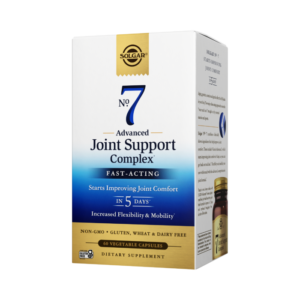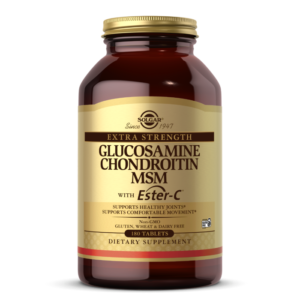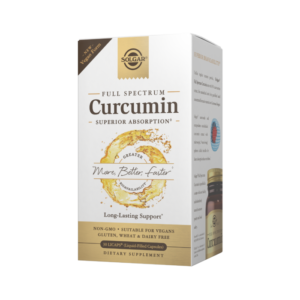Key Takeaways:
- As you age, bone mass and cartilage can start to decrease.
- Strengthening your muscles, eating a balanced diet, and taking the right supplements for joint health can help you move with ease and continue doing what you love.
Your joints are your body’s support system – literally. Whether you’re doing day-to-day movements like walking, sitting, standing, or stretching, or more intense activities like weight-lifting or rock climbing, your joints allow you to move freely.
However, no matter how healthy you are, your joints will begin to show some changes in mobility after a lifetime of activity. If not addressed, decreased joint mobility can cause occasional discomfort.
Let’s look at how your joints change with age and what you can do with your routine to help promote joint health.
The structure of joints
Before we address how aging affects joints, it’s important to understand the basic structure of joints. Cartilage cushions the ends of the bones, allowing them to move smoothly and easily against each other. A membrane called the synovium surrounds the joints and is filled with synovial fluid – a thick substance that helps keep your cartilage healthy.
The health of each of these things – bones, cartilage, and synovial fluid – all contribute to healthy joints.
Age-related changes in bone
Bone health is fundamental to maintaining healthy joints. Throughout your life, your body is continually engaging in a process called remodeling, during which old bone is removed and replaced with new, fresh bone. Up until about the age of 40, all bone is replaced. After age 40, however, less bone is replaced over time.1
One of the best ways to promote healthy bones is to make sure you’re getting adequate calcium in your diet.* Calcium is the main mineral found in bones, and it is the most important mineral for bone health.* Because old bone cells are constantly being broken down and replaced with new ones, it’s important to consume calcium daily to maintain bone structure and strength.*
Learn more about how your routine can assist with promoting good bone health.
Taking a calcium supplement is one of the easiest ways to get your daily dose of calcium in a form that your body can easily absorb.*
Calcium supplements for bone health
Solgar® Liquid Calcium Magnesium Citrate with Vitamin D3
Solgar® Liquid Calcium Magnesium with Vitamin D3 offers three nutrients for promoting bone health in one easy, liquid supplement.* The liquid form makes it easy to absorb, and each serving supports strong bones and teeth, helps maintain a healthy immune system, and helps maintain proper nerve and muscle function.* Available in strawberry, blueberry, and orange-vanilla flavors.
Solgar® Calcium Magnesium Plus Zinc
Calcium, magnesium, and zinc are all important for healthy bones.* This formula offers all three and supports strong bones and teeth, a healthy immune system, and more.* And, it’s non-GMO, vegan, gluten-free, dairy-free, kosher, and halal!
Age-related changes in cartilage
Cartilage is your body’s natural shock absorber.
As you age, your joints can occasionally become stiff and impact flexibility because the amount of lubricating fluid inside your joints decreases, and your cartilage can become thin.2 This decreased cartilage can cause stiffness, especially after sitting or lying down for long periods of time.
Without cartilage, the bones wouldn’t have anything protecting them and may start to rub together, causing discomfort or stiffness.3
How to promote joint health
With bone mass and cartilage starting to decrease as you age, it may seem like maintaining healthy joints can be a losing battle. Thankfully, however, there are many ways that you can help promote healthy joints within your daily routine and continue the activities you love.
1. Strengthen your muscles
Strength training is great for building muscle, but did you know that it can also promote healthy joints?
Think of your joints like a young tree or sapling: just like a sapling needs strings or stakes to help it grow strong and straight, joints need muscles and ligaments around them for strength and stability.
Strengthening the muscles stabilizes the joints and helps to take the pressure off weaker, worn-out joints. Be sure to talk to your healthcare practitioner before introducing new exercises to your routine.
2. Eat a balanced diet
What you eat affects every aspect of your health – including your joints. Eating foods rich in omega-3 fatty acids, such as walnuts, flaxseed, salmon, or other fatty fish, can help regulate the production of signaling molecules that can affect your joints.*
3. Take a joint health supplement
Exercise and a balanced diet are crucial, but taking a supplement can also help support your joint health especially where there may be nutrient gaps in your diet.
Keep reading to learn more about some of the best vitamins and supplements for joint health.*
Solgar® No.7
When you’re looking for an effective joint-supporting supplement, you want one that has been formulated with joint comfort in mind.* Solgar® No.7 is just that. Solgar® No.7 is specially formulated to target multiple pathways that balance the release of joint enzymes, structurally support collagen building blocks and joint comfort.*
This breakthrough bio-active formula contains:
- Undenatured UC-II® Standardized Cartilage – supports comfortable joint movement and range of motion* (Patented process; made in USA)
- 5-Loxin Advanced® – clinically studied to support joint health and function.* Helps alleviate occasional joint stiffness* (extracted from Indian frankincense trees — Boswellia serrata
- Ester-C® – This unique, stomach-friendly form of Vitamin C supports your body’s collagen production.* Vitamin C also delivers immune system support.*
- Botanical Extracts – turmeric, ginger, and white willow bark; often used in traditional herbal wellness practices.
Solgar® Full Spectrum Curcumin
Curcumin offers a range of benefits, and joint health is one of them.*
Curcumin acts as an antioxidant, helping to fight free radicals that are naturally produced in the body.* Free radicals can lead to oxidative stress, which is negatively associated with joint health.
Although turmeric is highly accessible, it has poor bioavailability – meaning the body struggles to absorb the ingredient to gain all of curcumin’s benefits. For that reason, when looking for a curcumin supplement, it is important to choose one formulated for greater bioavailability, as in Solgar® products.
Solgar® Full Spectrum Curcumin Liquid Extract Softgels have better absorption than native curcumin.◊ Each serving contains 40 mg of curcumin and stays in the body longer than native curcumin extract, giving you the advanced joint support you need.◊*
Glucosamine
Glucosamine is a chemical compound naturally found in cartilage, the tough tissue that cushions your joints. Glucosamine can help support healthy joints by supporting cells called chondrocytes, which help maintain cartilage structure.*
Glucosamine is also found in some animal and other non-human tissues, including shellfish shells, animal bones, and fungi. However, one of the best ways to get glucosamine externally is through a supplement.
Solgar® Extra Strength Glucosamine Chondroitin MSM with Ester-C®: Specially designed to nourish your joints and cartilage, this formula helps bring fluid into the joints and maintain flexibility, mobility, and comfortable movement.* This formula also contains Ester-C® to support joint health by helping to maintain enzymes necessary for collagen formation in their active state.*
GET THE LATEST UPDATES AND EXCLUSIVE DEALS WHEN YOU SIGN UP FOR OUR NEWSLETTER!
The bottom line
Your joint mobility and flexibility may be impacted as part of the normal aging process, but by taking the right steps, you can continue to do what you love. Exercising, eating a balanced diet, and taking supplements for joint health can help keep you moving with ease. And besides, age is just a number, right?
Get smarter while you scroll! Follow us on Instagram to learn more about health and wellness and Solgar® products.
*These statements have not been evaluated by the Food and Drug Administration. These products are not intended to diagnose, treat, cure or prevent any disease.
◊These statements are based on a human study of NovaSOL™ curcumin in comparison with native curcumin extract, using an object measure (metabolite analysis).
The information provided on this site is intended for your general knowledge only and is not a substitute for professional medical advice or treatment for specific medical conditions. Always seek the advice of your physician or other qualified healthcare provider with any questions you may have regarding a medical condition. The information on this website is not intended to diagnose, treat, cure or prevent any disease. Never disregard medical advice or delay in seeking it because of something you have read on the Solgar® site.





